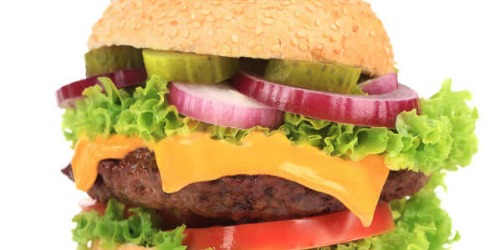Food to avoid during summer

New Delhi
During the season of heat waves, it's best to avoid certain edibles that can not only upset your stomach but also cause some or the other infection. Try not to consume a lot of spicy food, avoid overdose of non-vegetarian food, suggest experts.
Raheela Hasan, health and nutrition specialist and Founder at Fitrition—Nutrition For Life, and Manoj Kutteri, Wellness Director at Atmantan Wellness Centre, have listed food that can be avoided in the summer season:
Ice-cream sandwich: This treat usually packs nearly 500 calories and gets a 60 per cent of its flavour from saturated fat. A better idea: Make your own ice cream sandwiches using lower-fat sorbet.
Too much spice: Spice powders can certainly liven up a meal, but spices also can heat up the body as spices boost the rate of metabolism.
Rich non-vegetarian fare: Summer is not the time to tuck into rich meat gravies or tandoori, fish and chicken, or even seafood. In fact, this makes a person sweat more and causes digestive problems. It can also lead to diarrhoea.
Oily junk food: You must avoid burgers with meat patties, fries and other oily fare.
Salty snacks: These contain MSG (Monosodium Glutamate), a harmful additive that's been linked to an increased appetite and weight gain.
Avoid sauces: A cheese sauce is very avoidable too. It has close to 350 calories and it leaves you feeling bloated and sluggish. Some sauces also have too much MSG and salt. Instead, keep the meal nutritious and natural.
Devilled eggs: The risk of Salmonella (infesction) is highest in devilled eggs when they are not held at the right temperature (at or below 40 degrees Fahrenheit). Salmonella can live on both the inside and outside of eggs and the egg can still appear perfectly normal. Deviled eggs are cooked, which should kill any germs in the eggs. But because you combine a bunch of eggs together for the filling, and then it's at room temperature, bacteria can grow to dangerous levels if an egg is undercooked or contaminated after cooking.
Buy eggs only from stores or other suppliers that keep them refrigerated at or below 40 degrees Fahrenheit, and serve devilled eggs on ice at all times.
Leftovers: Leftovers should be handled properly as well. Once everyone has eaten, put the food in its appropriate hot or cold environment. Food left out becomes a problem because it enters the temperature danger zone, between 40 and 140 degrees Fahrenheit.
Count how many hours the food has been left out overall. If it is close to or over four hours, trash it. Do this especially if the food was left out a good part of the day, and at the hottest part of the day, just get rid of it.
- 2
- Leave a comment
Widely used e-cigarette flavouring impairs lung function

Washington :
A common e-cigarette flavouring has toxic chemicals similar to those found in tobacco smoke, which disrupts the lungs' antibacterial defence system, a study has found.
"Our data suggest that when used in e-cigarettes cinnamaldehyde, like toxic aldehydes in cigarette smoke, significantly disrupts normal cell physiology in ways that may have implications for the development and exacerbation of respiratory disease," said Phillip Clapp, at the University of North Carolina in the US.
"Our finding that cinnamaldehyde impairs normal airway cilia motility is significant because it demonstrates that a common, food-safe flavoring agent, in the context of e-cigarette use, is capable of dysregulating a critical anti-bacterial defence system in the lungs," said Clapp.
Cinnamaldehyde is the chemical that gives cinnamon its characteristic flavour and odour.
Researchers performed their experiment by exposing human bronchial epithelial cell (HBEC) cultures to diluted cinnamon e-liquids and e-liquid aerosols from a third generation e-cigarette device.
The frequency of movement of hair-like projections (cilia) that clear mucus and dirt from the lungs - that is, cilia beat frequency (CBF) - was measured over 120 minutes using a high-speed digital camera and a video analysis system.
The cinnamaldehyde content of each e-liquid was determined, and HBECs were then exposed to various concentrations of cinnamaldehyde to determine if cilia beat frequency changed as the dose increased.
The researchers evaluated changes in mitochondria oxidation phosphorylation, the process by which cells generate the majority of their cellular energy.
Several different reactive aldehydes, a group of chemicals also found in cigarette smoke, cause lung inflammation, and increase susceptibility to bacterial and viral infections.
In recent years, e-cigarettes have emerged as potentially safer alternatives to traditional cigarettes because they provide the sensation of smoking and the desired nicotine effect without burning tobacco.
"E-cigarette emissions contain chemicals that have not been evaluated for inhalation toxicities," said Clapp.
"The inhalation of flavouring agents, which are frequently reactive aldehydes, poses a significant unknown in regards to the potential health risks of e-cigarette use as many of these chemicals are structurally similar to toxic aldehydes in cigarette smoke," he said.
"Moreover, aldehyde flavouring agents are often used in exceedingly high concentrations in e-cigarettes, which may lead to high exposure doses," he added.
Researchers decided to conduct this experiment because many food additives "generally recognised as safe (GRAS)" by the US Food and Drug Administration (FDA) have been added to e-cigarettes without further study of their effects when inhaled.
They became especially concerned after looking at the chemical structures of various e-cigarette flavouring agents that have chemical structures similar to those that are found in cigarette smoke with known toxicities.
Learn music, new language to make your brain more efficient

TORONTO: Learning to play a musical instrument or speaking another language can train your brain to be more efficient, according to a study which has found that musicians and bilingual people have a better working memory.
In the study published in the journal Annals of the New York Academy of Sciences, individuals with either a musical or bilingual background activated different brain networks and showed less brain activity, researchers said.
“These findings show that musicians and bilinguals require less effort to perform the same task, which could also protect them against cognitive decline and delay the onset of dementia,” said Claude Alain, a senior scientist at Baycrest’s Rotman Research Institute in Canada.
“Our results also demonstrated that a person’s experiences, whether it’s learning how to play a musical instrument or another language, can shape how the brain functions and which networks are used,” said Alain.
Musicians and people who are bilingual have long been shown to have a better working memory, the ability to keep things in mind, such as remembering a phone number, a list of instructions or doing mental math.
However, it remains a mystery as to why this is the case. This is the first brain imaging study looking at all three groups and this work uncovers how these activities boost different parts of the brain among individuals, said Alain.
The study looked at the brains of 41 young adults between the ages of 19-35, who fit into three categories: English-speaking non-musicians, musicians who only spoke English and bilinguals who didn’t play a musical instrument.
Brain imagery was captured for each participant as they were asked to identify whether the sound they heard was the same type as the previous one.
Sounds from musical instruments, the environment and humans were among those used in the study. Participants were also asked to identify if what they heard was coming from the same direction as the previous noise.
Musicians remembered the type of sound faster than individuals in the other groups, while bilinguals and musicians performed better on the location task.
Bilinguals performed at about the same level as individuals who spoke only one language and didn’t play a musical instrument on remembering the sound, but they still showed less brain activity when completing the task.
“People who speak two languages may take longer to process sounds since the information is run through two language libraries rather than just one,” said Alain, who is also an associate professor at the University of Toronto in Canada.
“During this task, the brains of bilinguals showed greater signs of activation in areas that are known for speech comprehension, supporting this theory,” he said.
As next steps, researchers are exploring the impact of art and musical training among adults to see if this leads to changes in brain function.
Are you an overthinker?

Our monkey minds race faster and more often than we’d like them to. Here’s how to calm an overactive mind: Exercise: Move your body – running, yoga, swimming, zumba. Do any form of exercise you enjoy. It will do two things: one, it will help you get out of your mind, and into your body; and two, it will balance out your hormones. Exercise lowers stress hormones, and releases happy hormones, uplifting your mood instantly.
Deep breathing: Bringing focus to your breath can be extremely relaxing and rejuvenating. Over time, and with regular practice, focused deep breathing improves concentration and overall state of mind.
Go dancing: Too many of us take ourselves and our lives too seriously. Things are hardly ever as bad as you think they are (unless they're worse. Haha, joking). Learn to take things lightly, one day at a time, and enjoy the process!
Live in the ‘now’: The overactive mind is constantly thinking about the past or future. By living in the now you will be able to release what you cannot control. This doesn’t mean that you instantly become unaware of what has happened or what is about to happen. It is more of a realisation that the past cannot change and the future hasn’t occurred, so why think about either?
Do you get easily angry in hot weather? This finding will surprise you

We all get hot and irritable during summers and now we have a theory that explains why it happens. A team in Poland conducted a study to find the link between rising temperature and stress levels. This has been something that has puzzled experts for many years.
The research has revealed that cortisol, which is the stress hormone is lower in winter, and the heat does make it rise. This could affect public health because cortisol is important to regulate salt, sugar as well as fluids across the body.
Pathophysiologist, Dr Dominika Kanikowska of Poznan University of Medical Sciences, was surprised to see more cortisol circulating in the body during warm weather. She shared, "These non-intuitive findings contradict traditional concepts of the taxing physical toll of winter and the relaxed ease of summer."
The first sample of data was actually derived from crime statistics and how it was associated with the weather. The report showed criminals engaging in increased violence when it was warmer.
Many theories connect warm temperatures with spike in heart rate, testosterone along with metabolic reactions, triggering the sympathetic nervous system.


